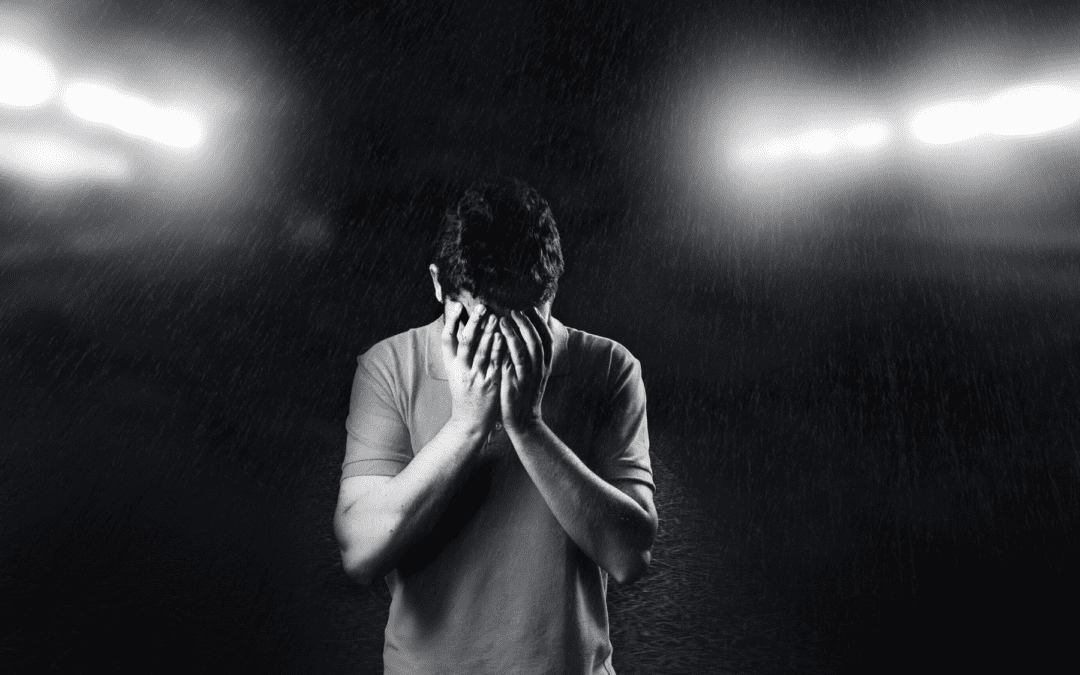Author: George Hofmann
It takes a while to diagnose someone with bipolar disorder. In fact, the average delay between the first appearance of symptoms and a correct diagnosis is six years.
I remember when I first recognized that something unusual was occurring in my body and my behavior. I was having strange pains in my shoulders and gut, and I was losing interest in work and straying from a long-term relationship.
My doctor first prescribed an anti-inflammatory for fibromyalgia, then an anticholinergic for irritable bowel syndrome. When things didn’t improve he prescribed an antidepressant. He thought I was depressed, and he thought that would help.
Soon I was buying expensive art and an expensive car, abusing substances, having affairs and spending an unusual amount of time prowling through cemeteries. Then I went psychotic. I saw dead people and tried to sabotage the company I worked for. I registered to buy a gun, but fortunately I was admitted to a psychiatric hospital on my 31st birthday just before the waiting period for the firearms license passed.
For years before I had hypomanic and even manic symptoms, but they felt great, so I never thought anything was wrong. In the hospital they first thought I was schizophrenic. A second hospitalization followed, and I underwent a long course of electro-convulsive therapy before a doctor finally diagnosed me with rapid cycling mixed-episode bipolar disorder 1.
That this is not that unusual a story is heartbreaking.
The first doctor was a general practitioner who finally admitted he was out of his league. Like too many GPs, he was rushed and quick to diagnose and treat a behavioral problem. No real follow-up was scheduled. He randomly prescribed an antidepressant and sent me on my way.
People who visit GPs with unusual EKGs or difficult to control blood sugar are sent to specialists. Yet too many doctors feel they can diagnose and prescribe for behavioral conditions without referring their patients to a psychiatrist.
A WebMD article describes how anxiety, depression and bipolar disorder share certain key symptoms. Unfortunately, if a patient is misdiagnosed and prescribed medication for the wrong condition, that medication can seriously aggravate the symptoms of the mood disorder the patient actually suffers from.
All too often someone with bipolar disorder is first diagnosed with depression or anxiety, or even ADHD, to frequently disastrous results.
Only when a clinician spent a significant amount of time with me, with frequent follow-up and a careful assessment of my condition, was I properly diagnosed. Only then was it OK to prescribe powerful psychopharmaceuticals. It’s unfortunate that that had to happen in a hospital.
If you or someone you care for is experiencing psychiatric symptoms, make sure the doctor is paying careful attention and taking a significant history. Make sure follow-up is scheduled soon after the initial visit. If this isn’t happening consider a referral to a psychiatrist before medication is prescribed. In cases of serious mental illness a specialist is called for immediately.
Bipolar disorder, as well as depression and anxiety, can be successfully treated with effective rates higher than for most physical health conditions. But a patient must be properly diagnosed first.
When I first started to question my behavior I was scared and had no idea where to turn for help. Today there are many sources of information, like the IBPF. But the diagnosis must be made by a doctor. Make sure your doctor is spending enough time with you to get full information about your condition, and make sure your doctor has the proper training in psychiatric medicine.
Since I received the proper diagnosis and the proper medication, and since I added helpful adjunct therapies like meditation, I have lived without a significant episode of mania or depression. That success is available to almost everyone. You can achieve it too, if you and your doctor are willing to take the time to get it right.
George Hofmann
After a series of hospitalizations and a lot of bad behavior, George Hofmann managed to overcome the worst of bipolar disorder by adding practices in focused attention to the usual therapies of medicine and talk. He works to show others with anxiety, depression and bipolar disorder how to do the same. He maintains the site “Practicing Mental Illness,” which promotes meditation, movement and meaningful work as keys to growth and healing. George has conducted workshops on meditation for individuals, families, support groups, healthcare professionals and corporations. He lives in Philadelphia, Pennsylvania with his wife, their daughter and two poorly behaved dogs.
www.practicingmentalillness.com


